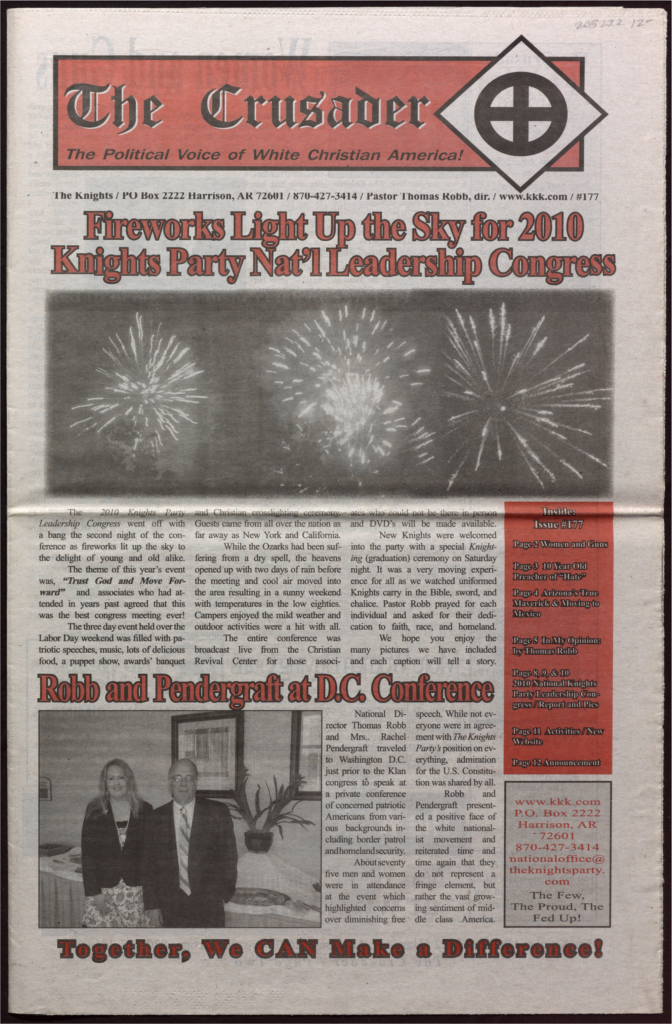| By Rachel Holt, Acquisitions Editor, Gale Primary Sources |
The multi-award-winning Political Extremism and Radicalism database from Gale is an invaluable tool for teaching, conducting research, and supporting equity, diversity, and inclusion (EDI) initiatives in the classroom and on campus.
Donald Trump’s attempt to overturn the outcome of the 2020 presidential election and the resulting attack on the U.S. Capitol are striking examples of how America’s politics have become more extreme in recent years—but this didn’t happen overnight. The insurrection is currently under the national microscope as the House Select Committee investigating the January 6 riot is conducting explosive hearings.
As the information in Gale’s Political Extremism and Radicalism archive reveals, many of the far-right groups that took part in the Capitol assault have histories that go back for several decades—and their ideologies can be traced back well over 100 years.
Understanding the past is critical for navigating the present
Many of those who stormed the Capitol on January 6, 2021 were holding aloft flags that featured a coiled rattlesnake on a yellow background and often accompanied by the phrase, “Don’t tread on me.” This is known as the Gadsden flag, hearkening back to the American Revolution to expel British colonialists. Its symbolism has made a regular appearance in the propaganda of many far-right and ultra-conservative groups throughout history, including in The Crusader, a periodical produced by the Knights of the KKK; by the Order of the Upright Ostrich, an extreme-right organization operating in the 1980s; the Constitution Party, a political party that promotes a religious conservative view of principles and intent of the United States Constitution, as well as many others.

Read our EDI Insights Report to learn how to promote EDI through more purposeful use of primary and secondary source materials, the biggest challenges in developing an EDI program, the future of teaching and learning, how to find allies across your institution, and more.
Gale’s Political Extremism and Radicalism collection, which recently won the prestigious CODiE Award for “Best Library Reference or Educational Database” and a platinum award in the 2022 Modern Library Awards, is an indispensable tool for informing these discussions.
Although a 2020 analysis from a centrist think tank showed that white supremacists and other right-wing extremists have been responsible for two-thirds of recent domestic terror attacks in the U.S., political radicalism isn’t confined to the right. It is also important to understand the revolutionaries and civil rights groups acting on the opposite end of the political spectrum. Gale’s award-winning database also chronicles examples of left-wing radicalism throughout the nation’s history, such as the Black Panther movement during the 1960s. Although we are not claiming that these groups are the same, they operated in the same time frame, were concerned with the same social issues, and were operating outside of mainstream politics. It is therefore important to study them together in order to get a well-rounded view of these events.
Key themes covered in the database include the history of fascism and anti-fascism, anti-war propaganda, anti-Semitism, radical propaganda, the Civil Rights movement, and white supremacy.
The collection includes rare and hard-to-find primary sources, as well as supporting tools for researchers. For instance, users can see the frequency of search terms within sets of content to identify central themes and assess how individuals, places, events, and ideas interact and develop over time.
Applications across the curriculum
Political Extremism and Radicalism has applications across a broad spectrum of higher-education curriculum. It can help students study and debate timely and complex issues that are in the national spotlight today, such as gun control and abortion rights. It can support scholarship within a number of departments where students engage in discussions on contemporary issues, such as Gender Studies and Women’s History; African American Studies; Political Science and Government Studies; Modern and Contemporary History; Justice, Law, and Criminology; and Sociology, to name some.

To further underpin the study of current events with historical context in student research, Political Extremism and Radicalism will be supported by a digital Learning Center, which, when it debuts later this year, will lend a wealth of instructional tools to expand on the value of the archive and help achieve mastery of digital humanities among users who are new to primary sources research.
The archive can even help colleges and universities achieve their EDI goals by facilitating difficult conversations on campus. Political Extremism and Radicalism is “invaluable for teaching equity, diversity, and inclusion,” wrote Erica England, a librarian at Washington State University in a review of the collection she authored for CCAdvisor.
Colleges and universities can request more information about this resource here.

